It's that time of year where we all gather to watch parades, paint blue stars and red stripes on our kids' faces, eat hot dogs (or the vegan version of such), and drink beer. It's a good time to reflect on our country's history, and the way it's presented to us in school and the media. I went to an all-girls school, so my teachers were conscious of presenting us with stories of women leaders. That said, I still got a pretty male-centric view of our country, and I'm sure you did too. So let's grow our sense of patriotism by celebrating American women who have really killed it when it comes to independence.
1. Abigail Adams, 1744-1818
Adams was both the wife and the mother of United States Presidents, and she wielded quite a bit of influence over them. Her husband John regularly relied on her for advice for a wide variety of issues. Their letters reveal mutual respect and admiration. She advocated for women to have property rights and greater access to education. In a March 1776 letter to her husband, she wrote, "remember the ladies, and be more generous and favorable to them than your ancestors. Do not put such unlimited power into the hands of the Husbands. Remember all Men would be tyrants if they could. If particular care and attention is not paid to the Ladies we are determined to foment a Rebellion, and will not hold ourselves bound by any Laws in which we have no voice, or Representation." She also argued against slavery, and helped educate black freemen who came to her.
2. Sacagawea, 1788-1812 or 1884
This badass Shoshone woman accompanied a group of men thousands of miles across the continent so they could speak with the locals and get credibility as a peaceful party. You knew that part. What you may not have known is that she completed the journey with a baby strapped to her back. There are also some compelling rumors that she faked her death so she could leave her white husband and go back to her people.
3. Lucretia Mott, 1793-1880
As a Quaker, Mott believed slavery was evil, and thus she and her husband James boycotted all slave-made products (primarily cotton, tobacco, and sugar), and founded the American Anti-Slavery Society. Their Massachusetts home also became a refuge for self-emancipated former slaves. Lucretia helped galvanize a group of activist women, both black and white, to defy societal norms and speak loudly and often against slavery and racism. She became the first president of the American Equal Rights Association and dedicated the rest of her life to a goal she never saw accomplished: suffrage for women.
4. Ellen Craft, 1826-1891
Ellen Craft pulled off a fantastic ruse when she made use of her white ancestry to free herself and her husband William from slavery. Dressing as a man and playing the role of slave owner, she and William calmly and collectedly boarded a train (first class, no less) and traveled to Philadelphia in December of 1848. They stayed in fancy hotels the whole way to add more credence to their story. As further proof of the ingenuity of their plan, Ellen wore her right arm in a sling to hide the fact that she didn't know how to write. Once they reached freedom in Boston, and later England, they wrote a book about their lives and their bold escape called Running a Thousand Miles for Freedom.
5. Jane Addams, 1860-1935
Jane's dreams of going to medical school were dashed by a father who wanted her to get married and have children. Managing to delay that monumentally depressing task for a while, she traveled around Europe, where she found a settlement house for the less privileged called Toynbee Hall. She decided to replicate the idea in Chicago with her friend Ellen Starr, founding Hull House in 1889. Her exposure to poverty catalized her activism, and she became an advocate for laborers. She also helped found the NAACP. During all of this, her anti-war sentiments grew, so she organized the Women's Peace Party. When she was awarded the Nobel Peace Prize in 1931, the presenter noted "in honoring Jane Addams, we also pay tribute to the work which women can do for peace and fraternity among nations."
6. Jeanette Rankin, 1880-1973
Another suffragist, Rankin didn't even wait for women to have the vote before she ran for office. In 1916, she was the first woman to be elected to the United States Congress. Because she was in Congress when the 19th Amendment came to a vote, she is the "only woman who ever voted to give women the right to vote."
7. Ethel Payne, 1911-1991
Known as the "First Lady of the Black Press," this journalist had a knack for asking aggressive questions and taking no shit. When she pressed President Eisenhower on the issue of segregated interstate travel, his absurdly angry response and subsequent shunning of her helped give civil rights issues more ink in the papers.
8. Bree Newsome, 1985-
Unless you're living under a rock, you know that Bree climbed to the top of a pole to remove the Confederate flag that flies over the capital in South Carolina. I'll let her awesome freedom words speak for themselves. "I removed the flag not only in defiance of those who enslaved my ancestors in the southern United States, but also in defiance of the oppression that continues against black people globally in 2015, including the ongoing ethnic cleansing in the Dominican Republic. I did it in solidarity with the South African students who toppled a statue of the white supremacist, colonialist Cecil Rhodes. I did it for all the fierce black women on the front lines of the movement and for all the little black girls who are watching us. I did it because I am free."
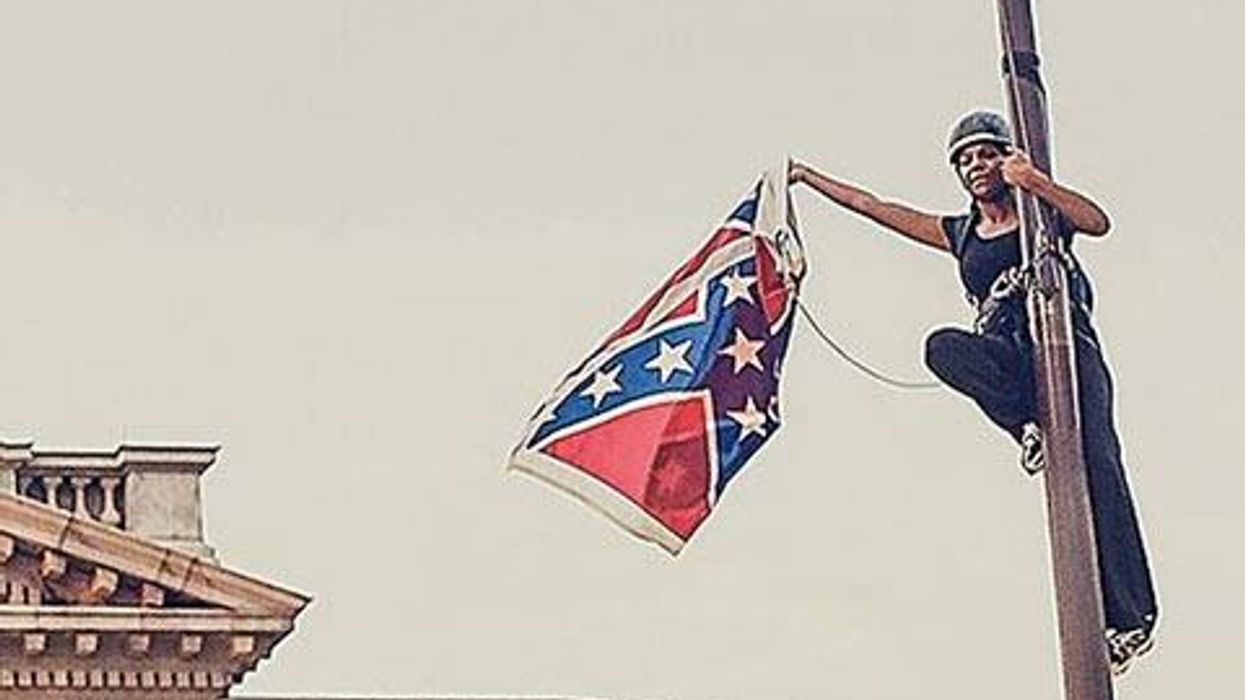



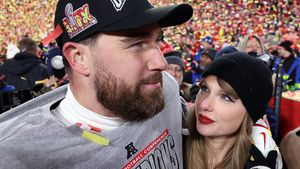








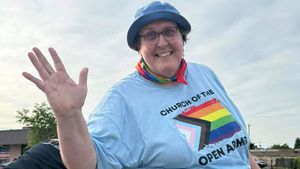















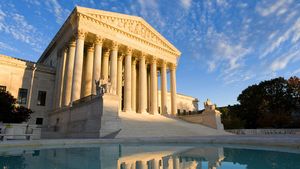










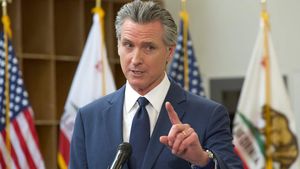














































 Cindy Ord/Getty Images
Cindy Ord/Getty Images

























